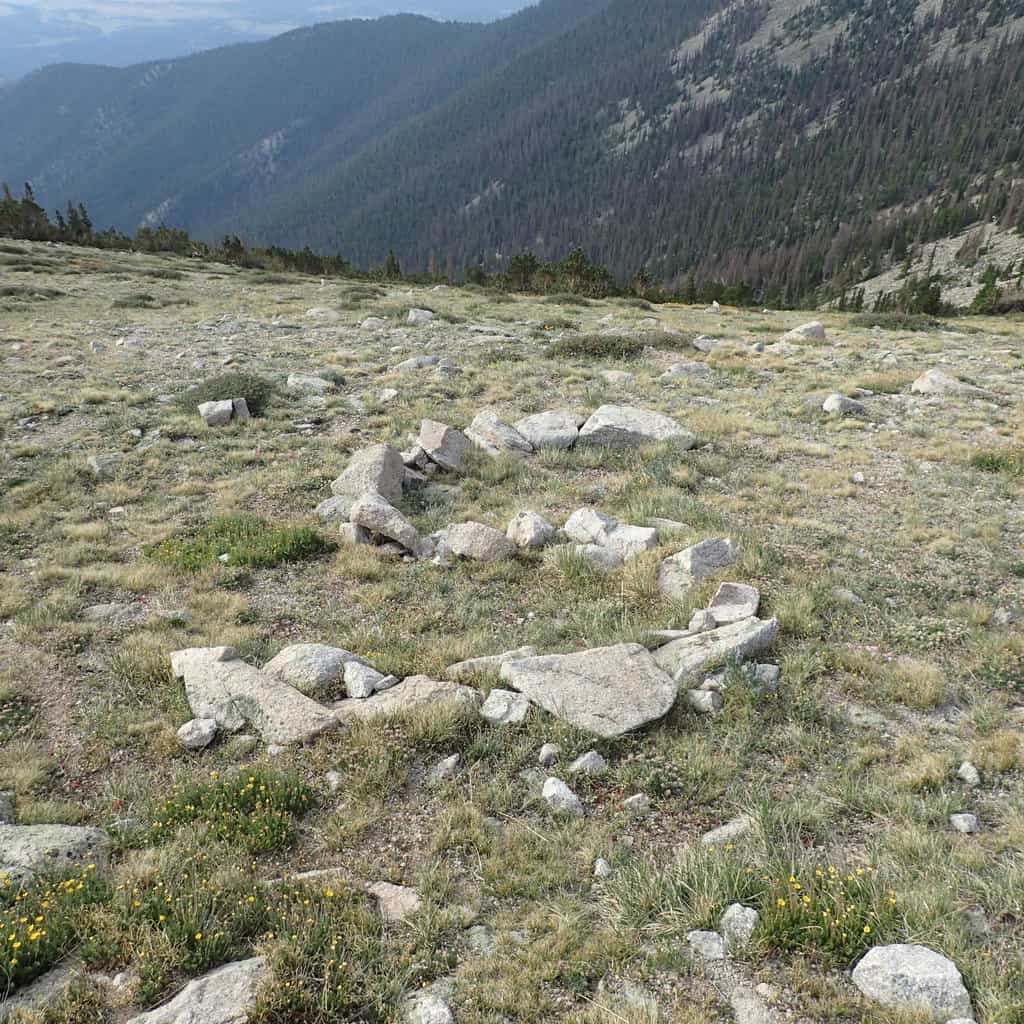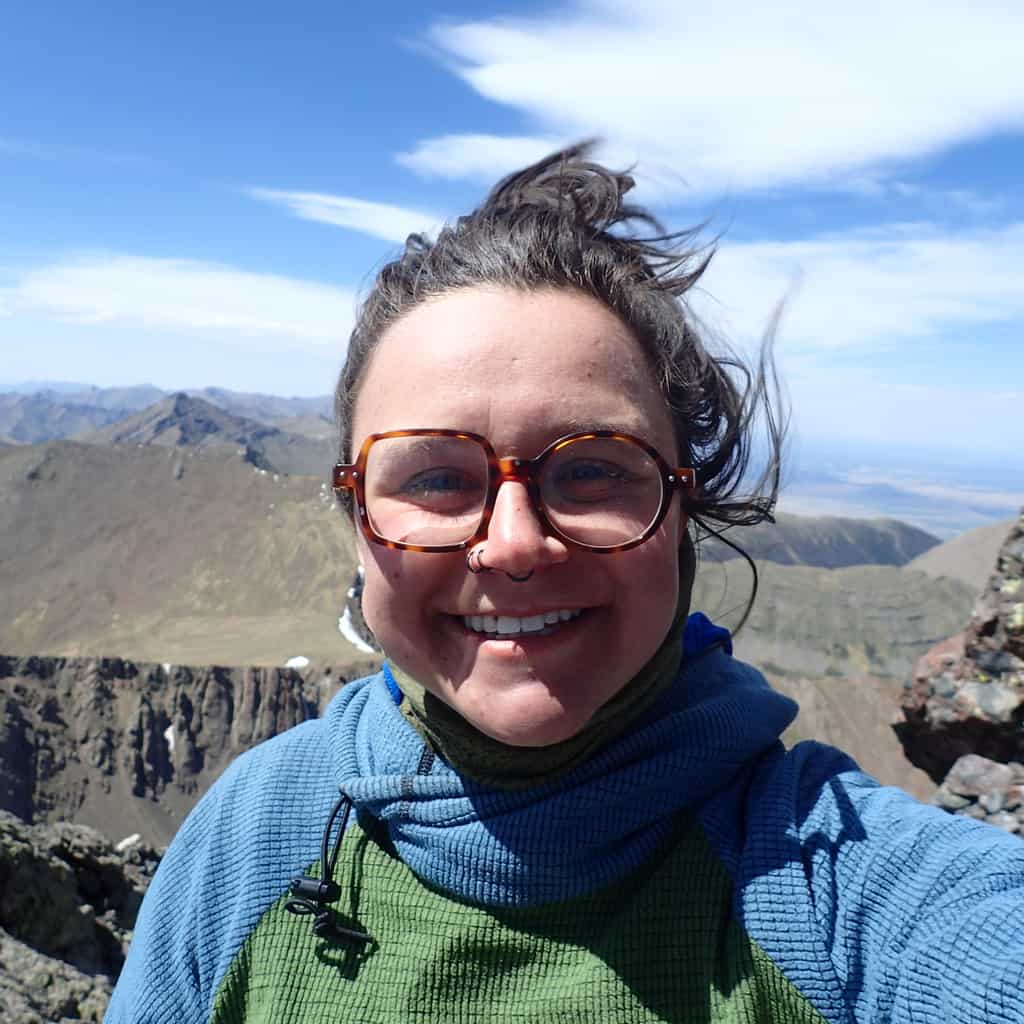I’ve been working in the mountains for a few weeks now, and I have observed several disturbing behaviors while out here. To be honest, the biggest one I’ve noticed is people doing it ‘right’ giving away their good mood to anger, geared towards those doing it ‘wrong’. Well, my good mood just isn’t worth it. And I have to believe that no one does the wrong thing on purpose – maybe some just don’t know the name of the game. So let’s talk about it.
As a quick review, here are the seven Leave No Trace principles that are generally a great guideline to live by when outside:
Now, let’s go into etiquette.
It is polite to yield to uphill hikers. Maybe you didn’t know! If you are hiking down the trail and see someone coming uphill, politely make room for them to pass you,whilst staying on the trail. If they pull off and decide to take a break, that is their choice – but please allow them to make that choice. It isn’t a numbers war, or a speed war, it is hiker etiquette.
Another thing, you don’t have to jump off the trail to let people pass. We work hard to keep the trails at a functional width without losing too much of the surrounding tundra. Try to find a rock to jump on, or just lean to one side. The vegetation is extremely sensitive to our presence – especially that of our feet! Just four foot steps on the same plant can kill it for good. So play what we call the “lava game”. It’s easy: imagine that everything except for durable surfaces, primarily rocks, is lava. So rock hop when you have to get somewhere off trail, and disperse when you are in a group.
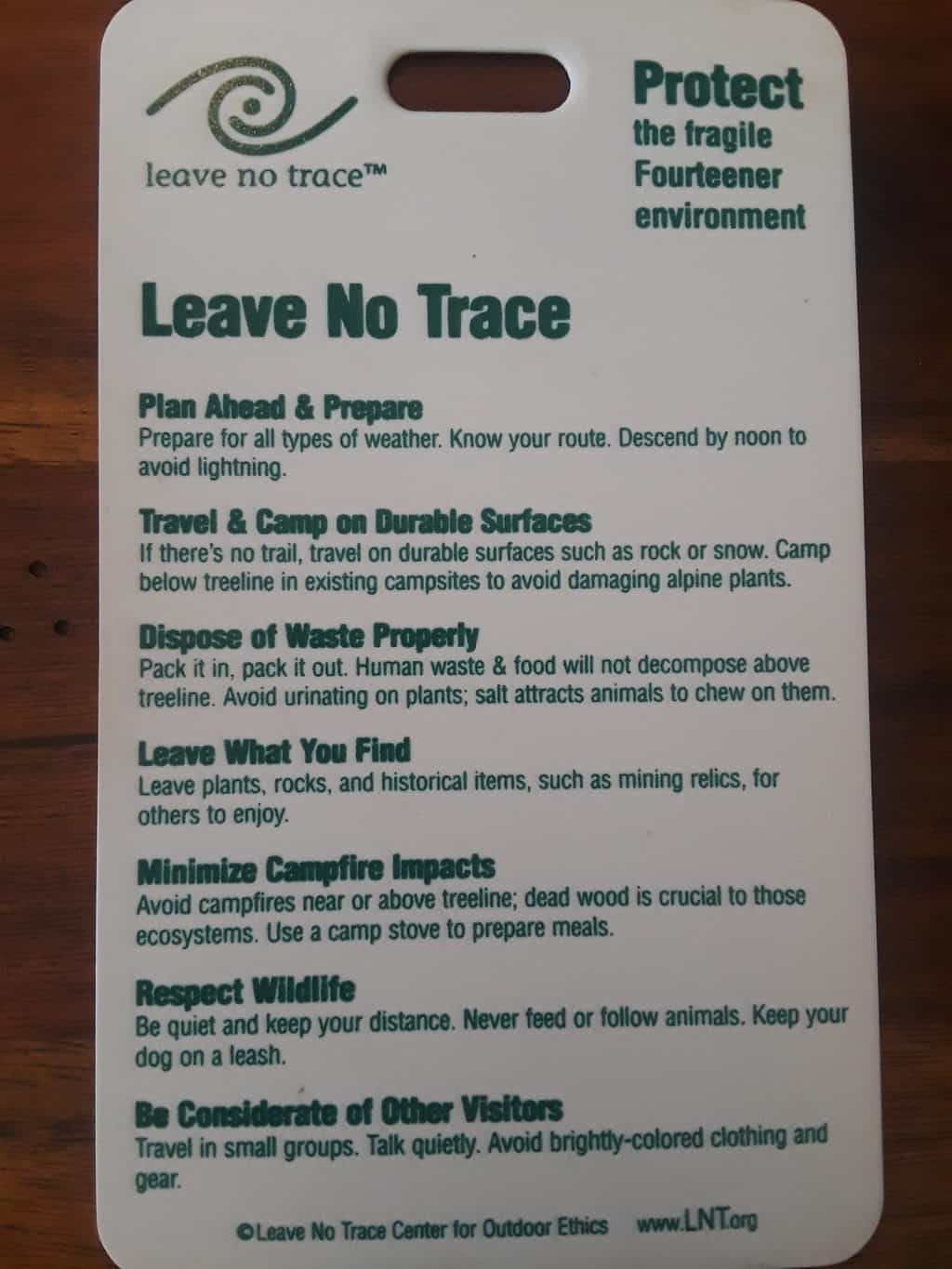
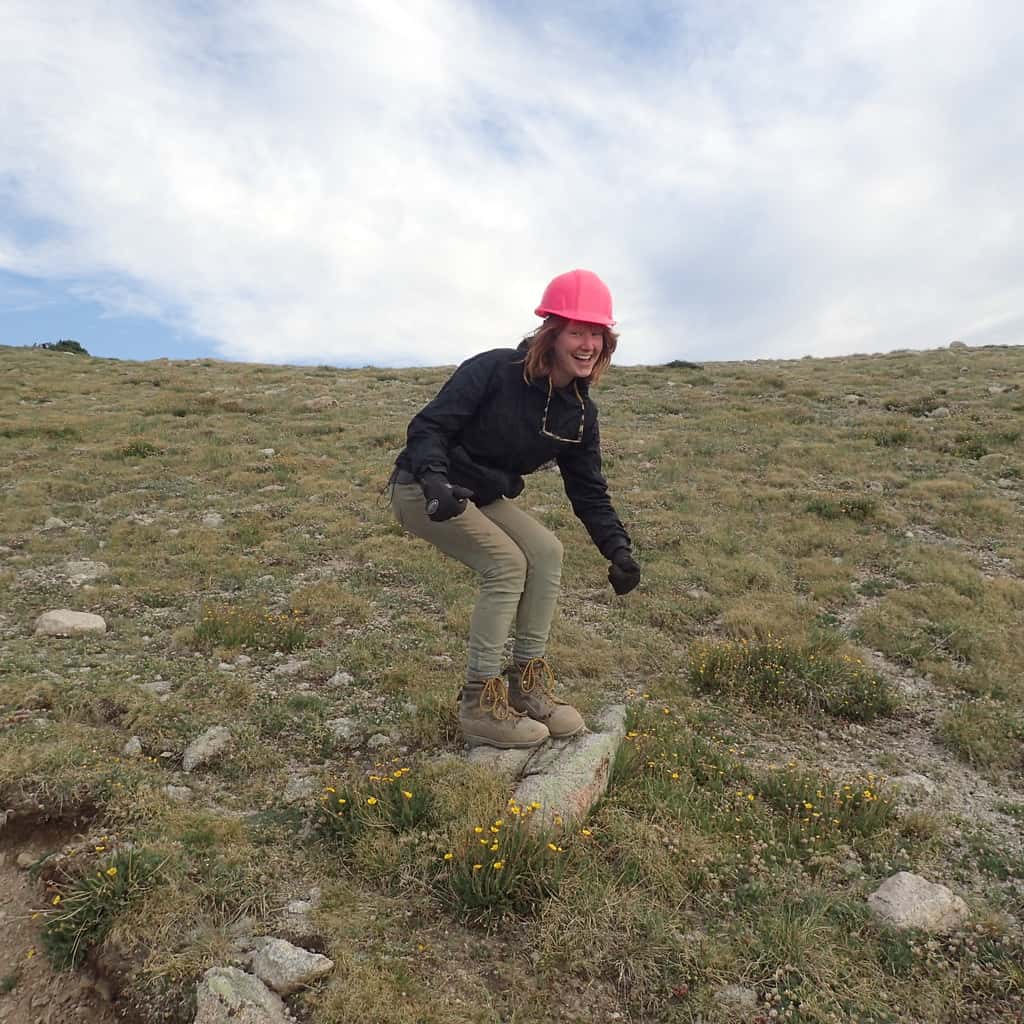
What do you do when you have to pee in the alpine? Play the lava game all the way to a great pee spot. What makes a great pee spot, you ask? Peeing on a pile of rocks is the best. This is because if you pee on plants, then the alpine fauna will eat them! They are hungry for salt, so anything with urine on it is quite appetizing to them and can cause lots of damage. If no rocks are available, a non-vegetated surface is preferable, like mud.
In case you didn’t know, there is no place for poop in the alpine. When we are out there, we use ‘wag bags’ – Yes, it is a bag that you poop in, but it is more than that. It is a degradable, puncture resistant, scent-trapping bag that catalyzes the break down of your waste and that is landfill approved, so you can toss it in the can after you drive down hill. The thing is, there is nothing to break down human waste in the alpine. It is harmful to the surrounding plant life, and it is likely to get washed down with snow melt and rain storms – and swept into our waterways. Gross! So, pack out your turds, and your dog’s too.
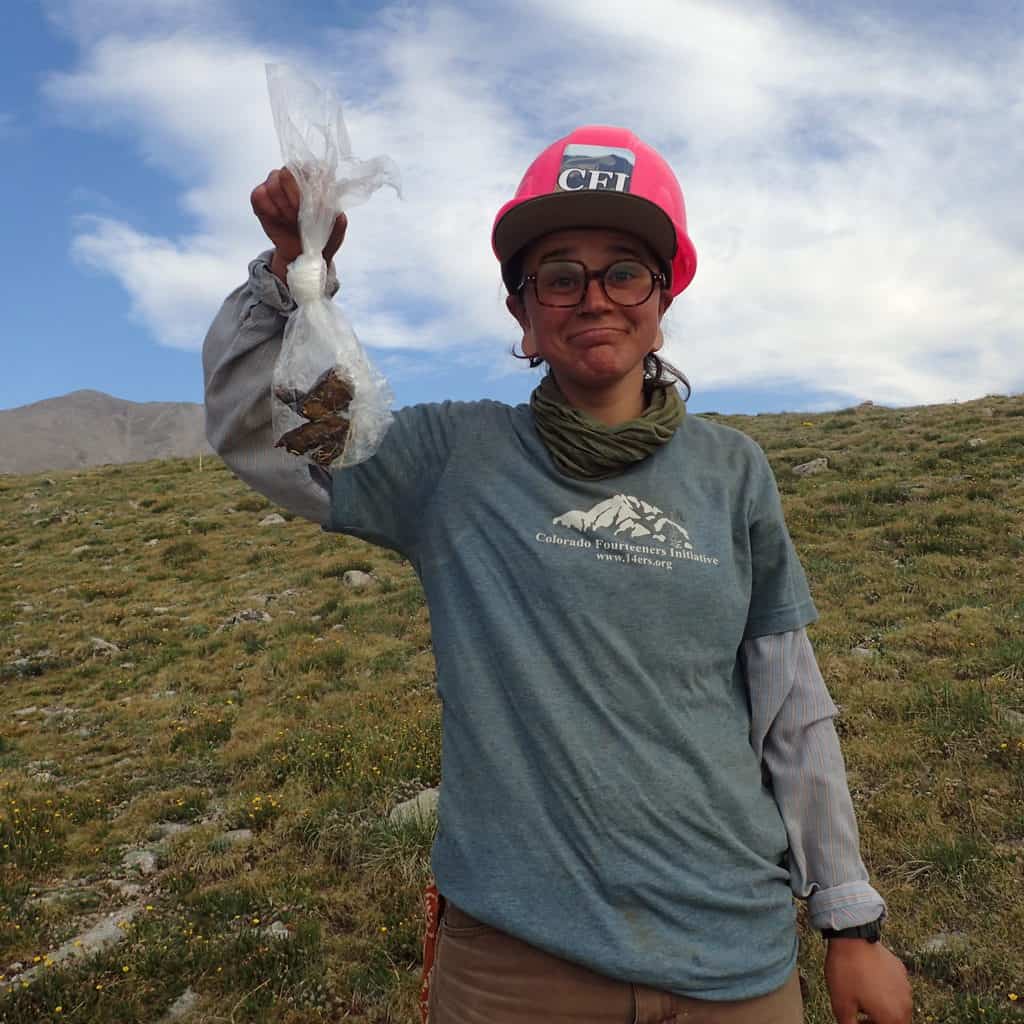
Dogs in the alpine are inevitable, but you may not realize the harm your pup can cause above tree line. There are the obvious things, like how dogs poop and pee everywhere. Hopefully you know that it is respectful to pick up your dog’s waste, but even that has its flaws. I can’t tell you how many bagged and not bagged dog poops I have had to personally carry off the hill this season – already! Also, your dog isn’t trained to pee on rocks. Beyond that, dogs off leash in the alpine put animals at high risk. The pika is a sensitive animal that sounds strikingly similar to a squeaky toy. It doesn’t take much for the pika to overheat after running and perish.
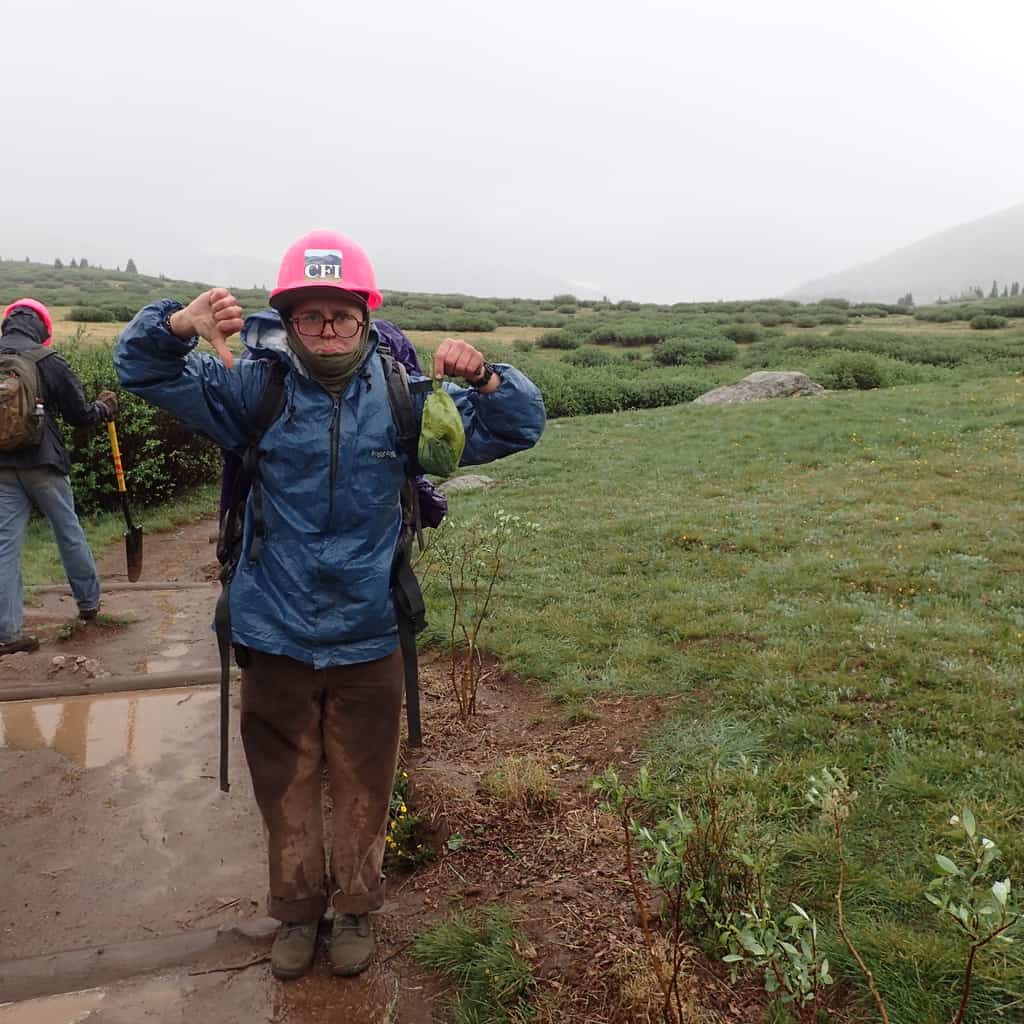
Don’t camp above tree line.
Why?
It isn’t a durable surface. These sensitive plants and fragile soils will take decades or longer to recover from the impact.
Take your food scraps with you! They don’t break down easily in the alpine, they attract wildlife and change their eating habits, they are ugly to look at, and they bring foreign material to the soil.
Think about it, if you had to carry it in, simply carry it out.
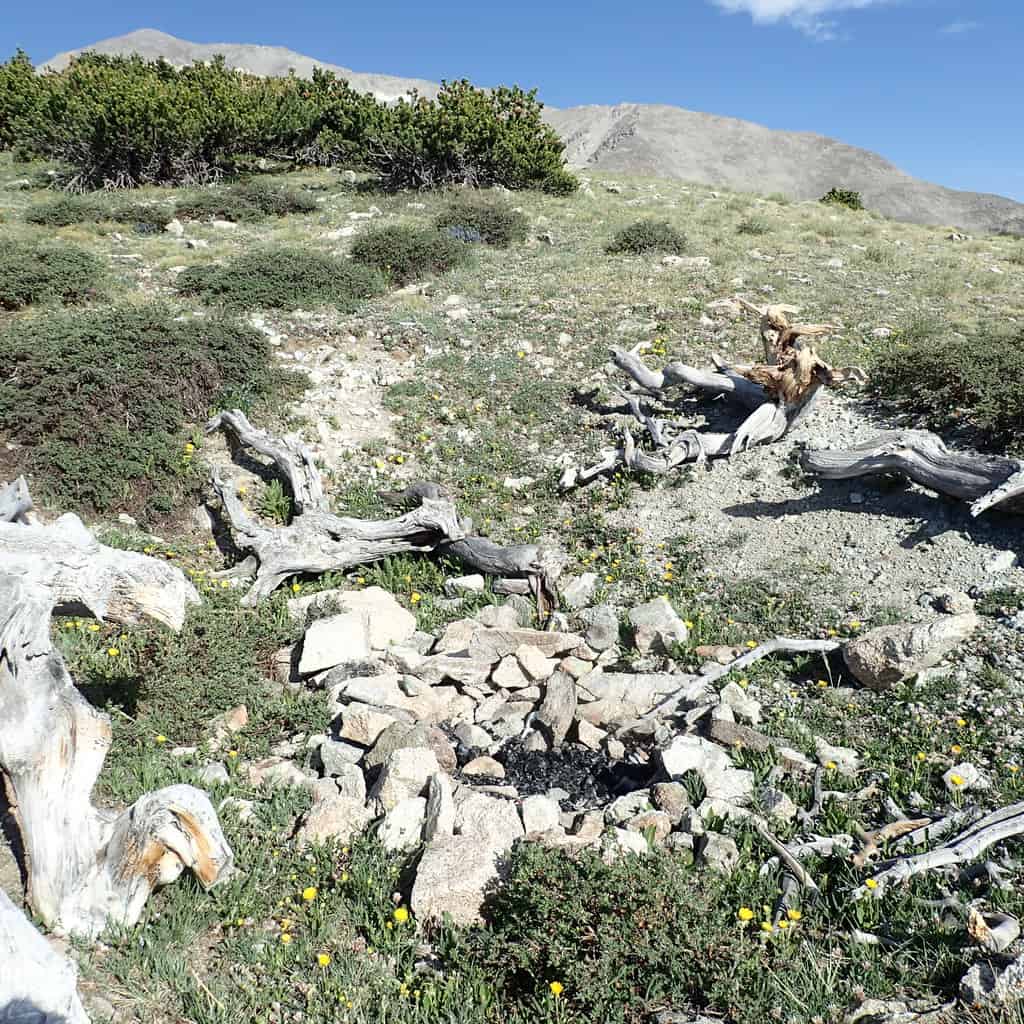

Don’t pick wildflowers! They are absolutely beautiful, but that isn’t all.
They play an essential role in the ecosystem, and removing just a few can affect the populations of pollinators, birds, bugs, and small wildlife – which in affect can impact the entire alpine environment and beyond. It can quicken soil erosion and destroy life that has been developing for years in intricate and complex ways.
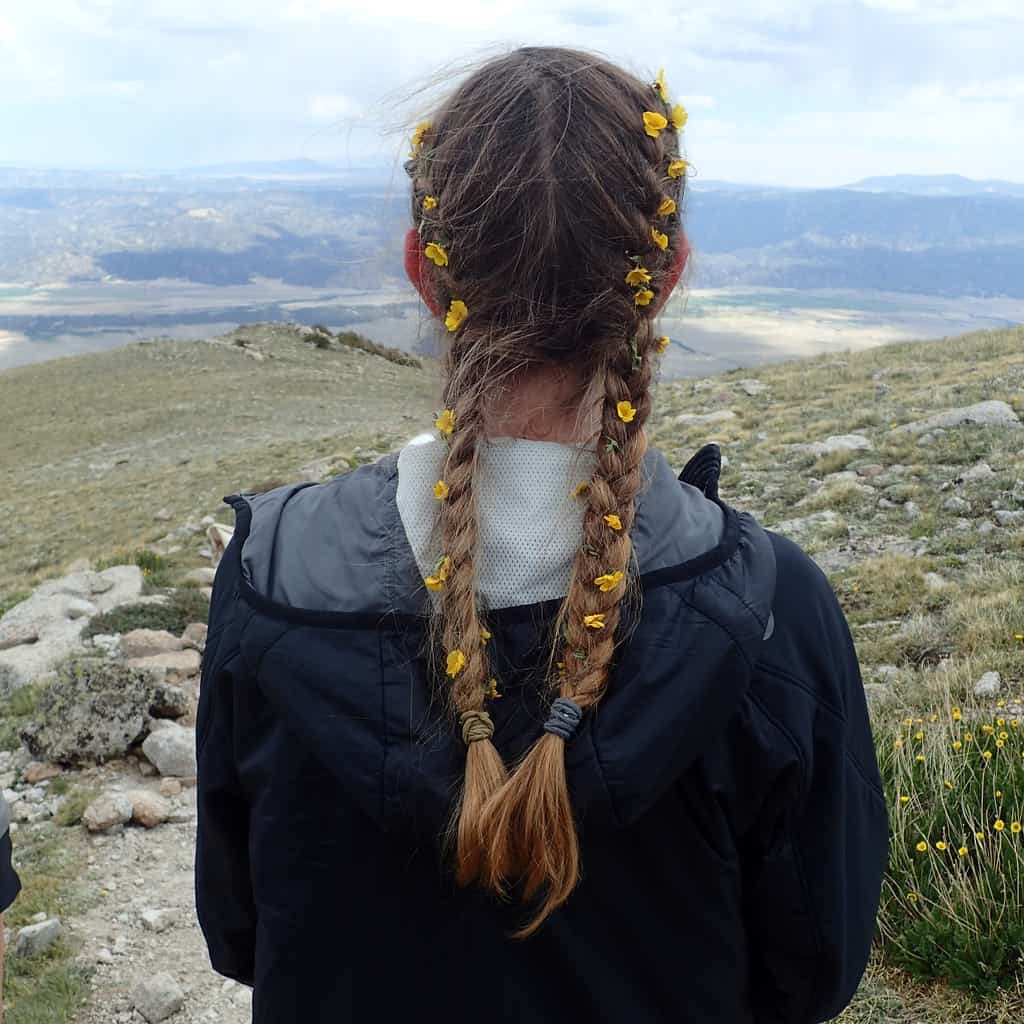
To wrap this all together, it’s simple. Don’t be selfish.
I know, that goes against our nature, but think before you act. Cherish these pristine environments for what they are, how they are, and in the ever-fleeting moments that you are there to appreciate them.
